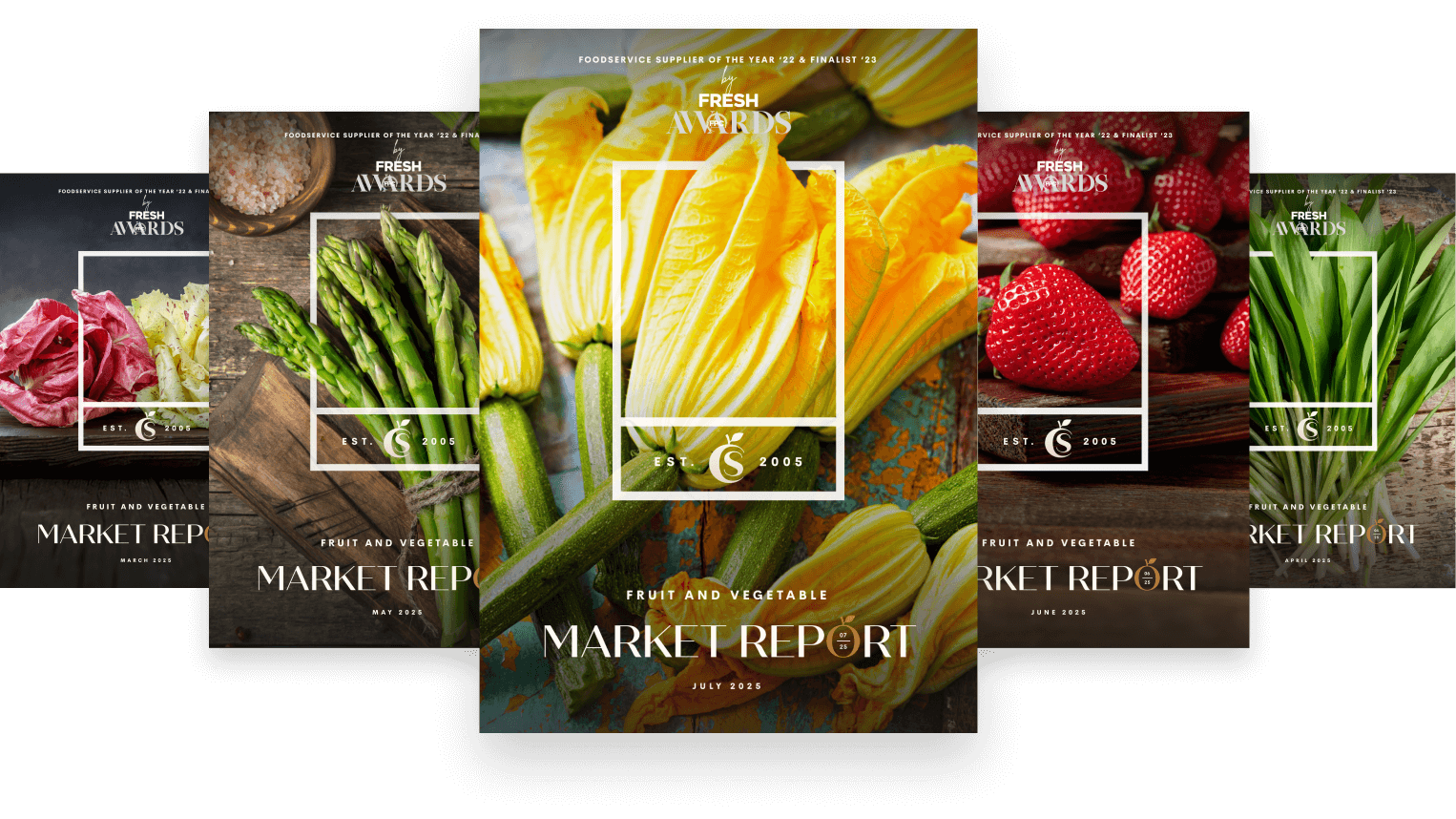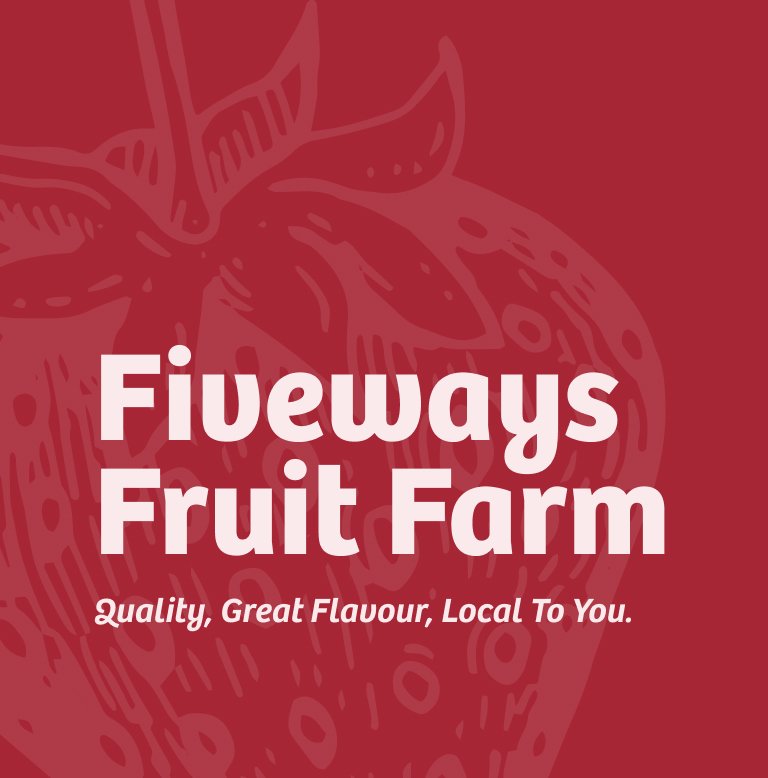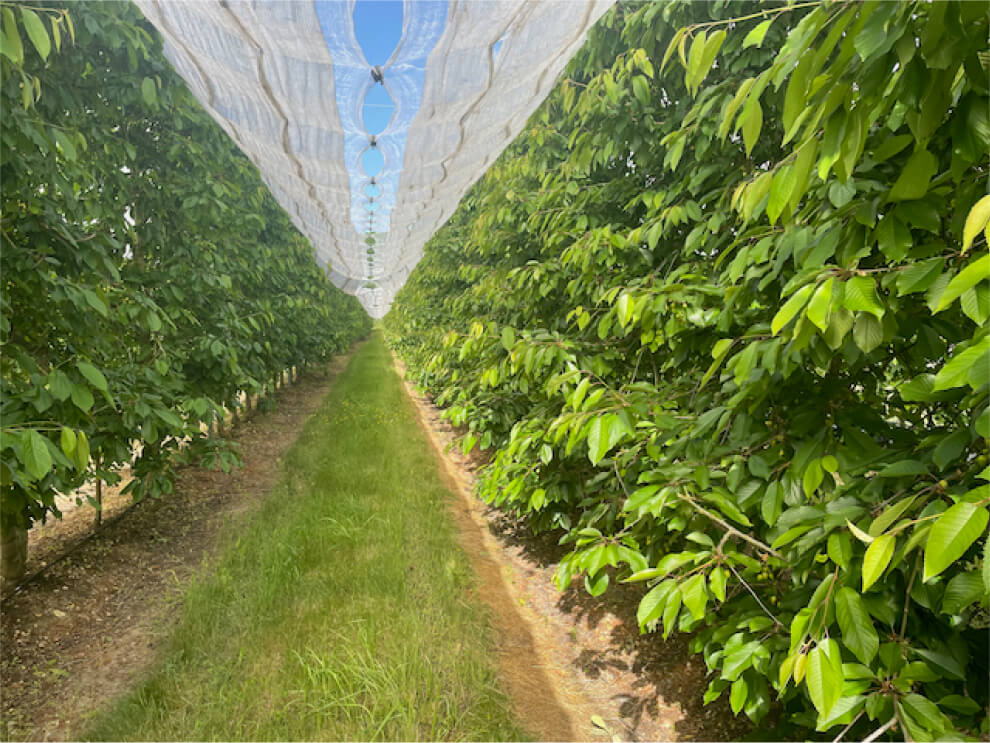
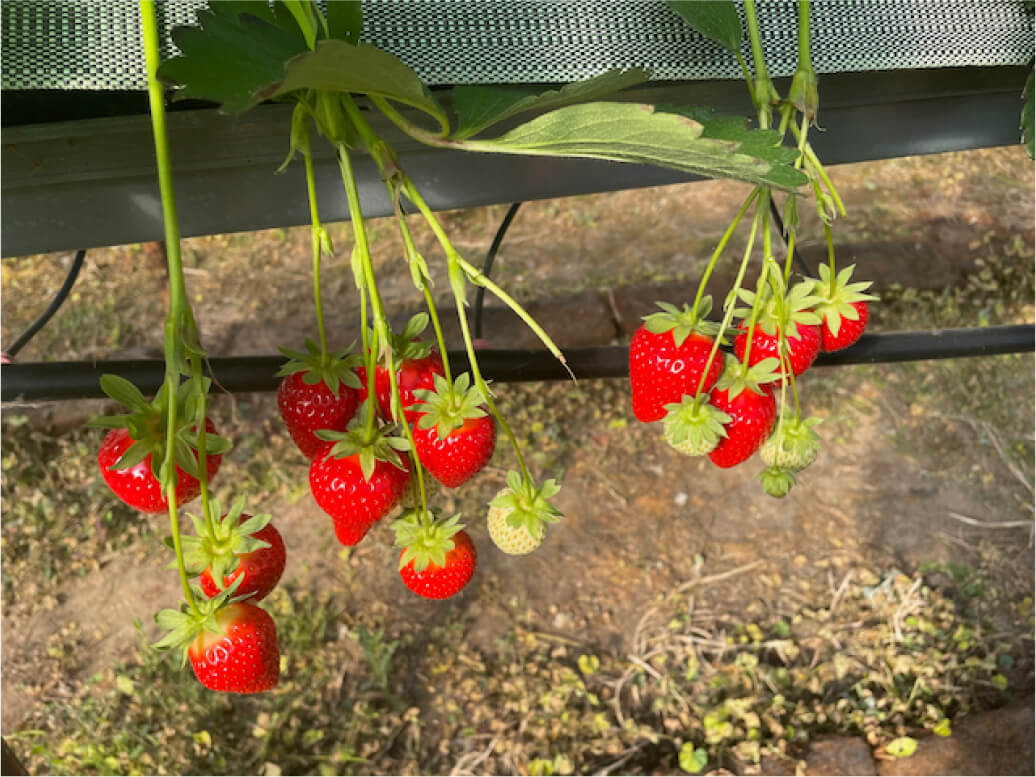
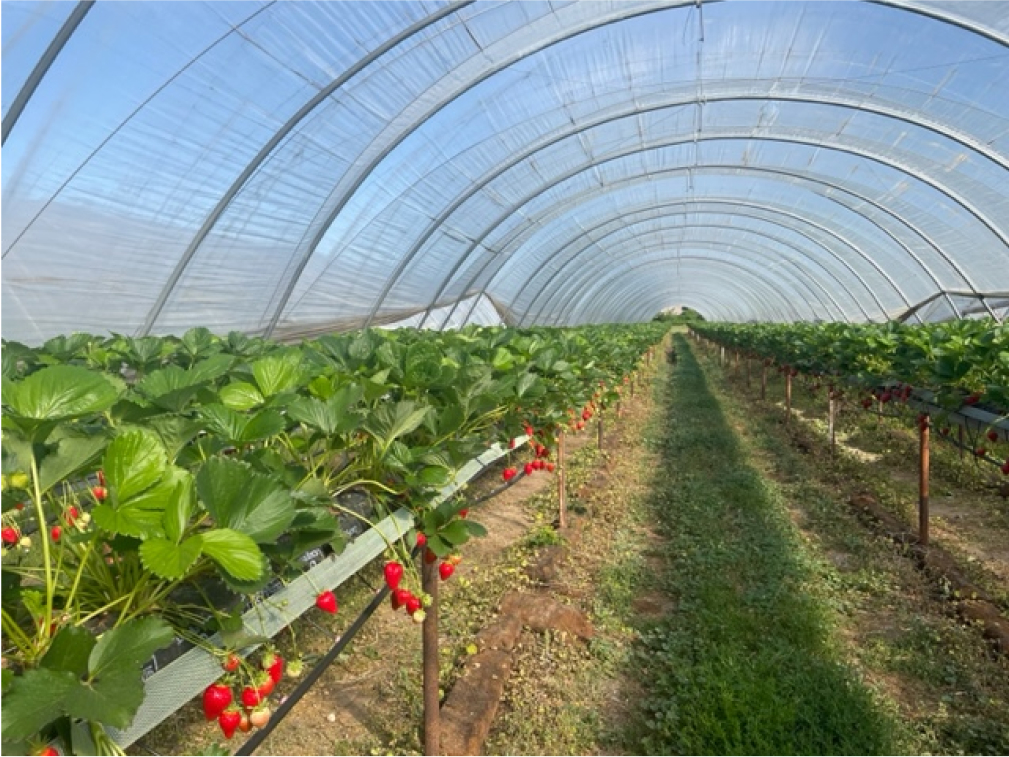
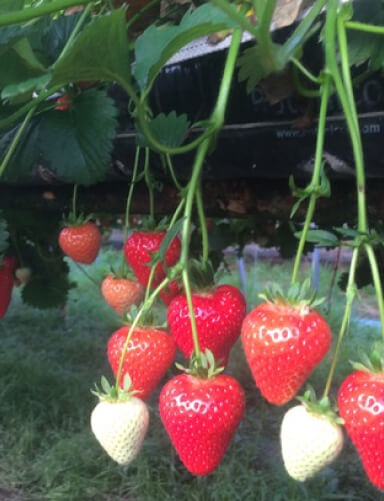
Fiveways Farm
Established in the 1930’s, Fiveways Farm is a family-owned soft fruit farm located in Essex. Today, it’s one of the UK’s best specialist berry farms growing strawberries, raspberries and cherries.
County Supplies Founder & MD, Robert Hurren interviews second generation farmer, Julian Mead on life on the farm, the seasonal challenges and his tips on how to grow the best summer strawberry!
Julian, tell us about the history of Fiveways Farm and how you came to work on the farm?
Well, my father bought the farmland just before the Second World War when it was all heathlands. He started planting tomatoes and, after the war ended, moved onto traditional Cox apples.
In the 1980s, I took a degree in horticulture. After I completed my course, I went to work for one of the leading apple farms in the country, based in the neighbouring county of Suffolk. I spent nearly a year there before my father became unwell and I returned home to pick up the reins.
You grow a wide variety of fruit today but how has this evolved over the years?
Apples were the only fruit grown for many years on the farm, until the 1970’s when we dedicated three acres of the farm to strawberries as a pick-your-own crop. It was a slow start. At that time, there were a lot of pick-your-own farms and if the weather wasn’t good, the berries wouldn’t be picked. It was quite high risk! We started by selling our surplus fruit in Colchester and using a car to make deliveries.
Throughout my growing life, we have supplied most of the large supermarkets through different sales routes, but we now deal directly with numerous independent customers often within a 50 mile radius of the farm.
What are the biggest changes in terms of the size of the farm and the crops that you grow?
We’ve diversified what we grow and introduced new growing methods including the use of polythene tunnels across the farm. Everything we grow is now grown under polythene, which enables us to protect the crops from the British weather.
The other big change is how we grow the crop. Originally, we were growing in the soil but with soil comes lots of fungi, diseases and pests. So, we’ve moved from growing in the soil to substrate and now grow everything in coir, sourced from Sri Lanka.
We also have an automated feeding system which allows us to tailor the type and amount of feed to the crops and we’ve moved everything to tabletop systems which raise the plants up to waist height or higher. We’ve also implemented rigid gutters and banks so that wastewater is removed from the tunnel, which helps decrease the amount of humidity present and reduce the likelihood of mildew.
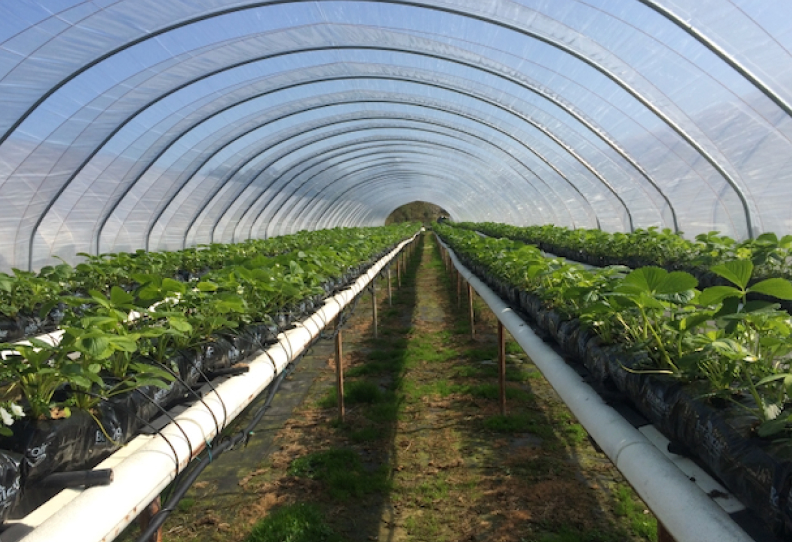
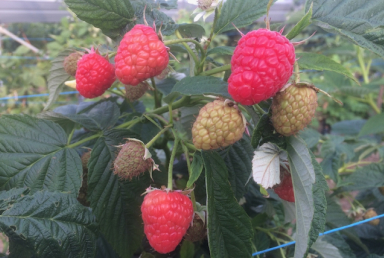
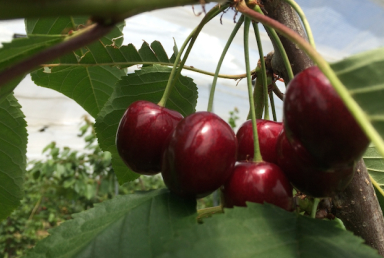
What do you grow the most of? How many varieties of strawberries and raspberries do you grow?
Berries are our core business. We pick our first fruits at the end of April – that’s the start of our season. In May, production tends to increase with June through to September being our peak time.
We grow around 75 tonnes of strawberries every year from two types of strawberry plant. We have two varieties of main crop and three varieties of everbearer strawberry.
A main crop strawberry will flower and fruit heavily over a 2-3 week period and then that’s it for the season. With an everbearer, small amounts of fruit are produced over a longer period. Often, an everbearer yield will overtake what a main crop variety can produce.
The principal main crop is a variety called Centenary, which has proved to be very popular. It has a great shelf life and it’s good in size. We also have a variety called Flair, which is a good early season variety and is on flower now. Typically, we start the season with Flair, move onto Centenary and then to our three everbearer varieties – Malling Ace, Prize and Favori.
In terms of raspberries, we grow three popular varieties – Ovation, Nobility and Majestic. In total, we grow around 15 tonnes of raspberries.
You mention the weather is a critical component. How does this affect how you grow, what you grow and the yield that the crops produce?
The weather is incredibly important. Frost at the beginning of the season can be a huge risk. It can damage the flowers of the crop which can result in no fruit at all.
This is another reason why covering the crops with polythene is vital. However, covering with polythene can also present its own problems such as humidity which can result in mildew.
The one thing I fear the most is strong wind.
Last March, we had erected our protective polythene tunnels across the farm when a storm hit bringing with it 60-70 mph winds. As a result, we lost most of our polythene and had to re-skin again. And, the incredibly hot summer last year also brought its own challenges. Berries are a particularly delicate fruit and need to be picked cool to keep a good shelf life. Our staff were terrific under these difficult conditions.

How do you envisage farming may change over the next five years?
I think we will continue to see a consolidation of farms. Automation will become more important with robots picking the fruit. However, I do see a place for smaller specialist farms, such as ours, who are able to supply excellent quality fruit quickly to the marketplace.
So, Julian, final question, what’s your favourite strawberry variety? What would you recommend?
For me, it must be Centenary – it’s such a solid, consistent variety in terms of quality. Very rarely do I have a bad Centenary berry!
Introducing the new County Supplies grower series:
At County Supplies, we source the very best seasonal produce from leading British growers.
From crunchy apples in spring and baby leaf during the summer to selecting the finest autumn squashes and handpicking festive Brussel sprouts – we’re proud to support our amazing growers.
Through our new series of grower interviews, we are sharing their stories and passion for the best seasonal produce. From succulent strawberries to the perfect asparagus spears, learn how they maximise both flavour and quality, and are working towards building a more sustainable farming future.
